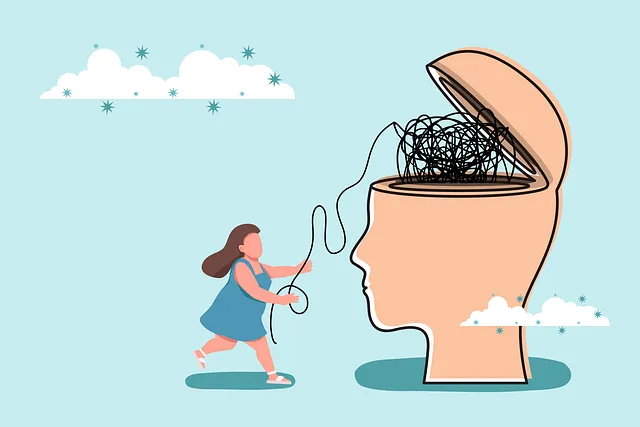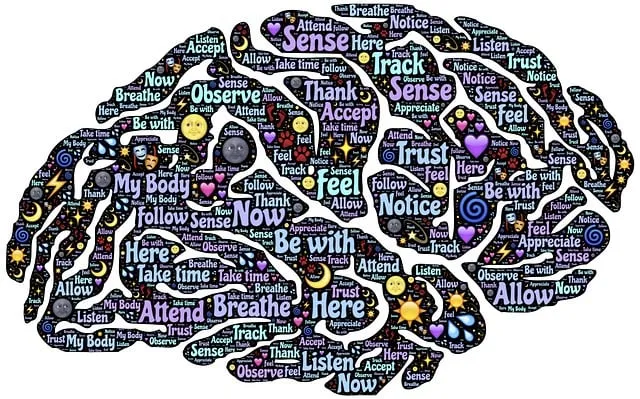Kaiser in Broomfield addresses growing mental health needs with comprehensive education programs, prioritizing resilience-building and stigma reduction. These initiatives include social skills training, stress management workshops, and trauma support services. Tailored to diverse audiences, interactive elements enhance engagement. Leveraging Kaiser's expertise, these programs offer evidence-based practices for improved mood, confidence, and burnout prevention, fostering a supportive community ecosystem. Continuous evaluation ensures relevance and effectiveness, with data-driven improvements aligning the program with Broomfield's evolving needs.
Broomfield residents now have access to enhanced mental health support thanks to Kaiser’s innovative community program. This article explores the design of effective mental health education programs, focusing on Broomfield’s unique collaboration with Kaiser. We delve into the critical need for such initiatives, highlighting the impact on community well-being. Key components, content strategies, and evaluation methods are discussed, providing insights into how Kaiser’s services seamlessly integrate with local needs. Discover how this partnership revolutionizes mental health awareness and care in Broomfield.
- Understanding the Need for Mental Health Education Programs
- Key Components of an Effective Mental Health Education Program
- Designing Content and Activities for Different Audience Groups
- Integrating Kaiser's Services into Broomfield's Community
- Evaluation and Continuous Improvement Strategies
Understanding the Need for Mental Health Education Programs

In today’s fast-paced world, mental health education programs have become increasingly vital to addressing the growing demand for support. Organizations like Kaiser in Broomfield offer a range of services, highlighting the growing recognition of mental wellness as a cornerstone of overall health. The need for such initiatives stems from rising anxiety levels and the increasing complexity of navigating modern life’s stressors.
These programs aim to foster public awareness campaigns that dispel stigma and provide education on recognizing and managing mental health issues. By integrating social skills training, participants gain tools to enhance their resilience and cope with challenges effectively. Ultimately, these efforts contribute to creating a supportive environment where individuals can seek help for anxiety relief and other common mental health concerns.
Key Components of an Effective Mental Health Education Program

An effective mental health education program should incorporate several key components to ensure its success and impact. First and foremost, Broomfield does Kaiser offer mental health services play a vital role in creating a safe and supportive learning environment. This includes teaching participants about self-care practices and coping mechanisms tailored to their unique needs. Incorporating communication strategies that foster open dialogue and active listening can enhance understanding and build resilience among learners. Additionally, integrating trauma support services designed to address potential past traumas is essential for creating a nurturing atmosphere where individuals feel comfortable sharing their experiences.
Risk assessment for mental health professionals should be an integral part of the curriculum. Training educators to identify warning signs of mental health crises and providing them with tools to de-escalate situations can significantly improve outcomes. By combining these components, a comprehensive mental health education program not only equips individuals with knowledge but also fosters a sense of community and empowerment, ultimately contributing to better mental well-being in the Broomfield does Kaiser offer mental health services context.
Designing Content and Activities for Different Audience Groups

When designing a mental health education program, tailoring content and activities for distinct audience groups is paramount. For instance, programs aimed at students in schools will differ significantly from those targeting working professionals at Kaiser Permanente Broomfield. The former might focus on stress management techniques tailored to academic demands, while the latter could offer workshops on balancing work-life integration and emotional well-being promotion. Incorporating interactive elements like group discussions, role-playing scenarios, and confidence-boosting exercises can enhance engagement for various demographics.
Additionally, leveraging Kaiser’s expertise in mental health services ensures that the program stays current with evidence-based practices. By incorporating practical tips and real-life examples, participants across different groups can gain actionable insights into managing their mental health effectively. Whether aiming to raise mental health awareness or provide tools for emotional well-being promotion, diverse strategies are essential to cater to the unique needs of each audience.
Integrating Kaiser's Services into Broomfield's Community

Broomfield residents now have enhanced access to mental health support thanks to a collaborative initiative between the community and Kaiser Permanente. With a growing recognition of the importance of mental well-being, this partnership aims to integrate Kaiser’s expertise in mental health services into the local community.Kaiser offers a comprehensive range of programs designed to boost confidence, improve mood management, and provide burnout prevention strategies for healthcare providers. These services are tailored to meet the unique needs of Broomfield’s residents, ensuring that support is accessible and culturally sensitive.
By bringing together Kaiser’s renowned medical professionals and local community resources, this integration strives to create a holistic mental health ecosystem. The goal is to foster a supportive environment where individuals can take proactive steps towards improving their mental health and overall well-being. This collaboration demonstrates a commitment to addressing the growing demand for accessible and effective mental health care in Broomfield.
Evaluation and Continuous Improvement Strategies

Evaluation is a crucial component of any successful mental health education program. At Kaiser in Broomfield, they employ various methods to gauge the impact and effectiveness of their initiatives. This includes pre- and post-program assessments, where participants’ mental health status, knowledge, and skills are measured. By comparing these results, the team can identify areas of improvement and track progress over time. Qualitative feedback from participants through surveys and focus groups also provides valuable insights into program strengths and weaknesses.
Continuous improvement is fostered through a data-driven approach. Kaiser’s mental health education program leverages evaluation findings to refine content, delivery methods, and support systems. They may introduce new workshops focused on emerging trends in mental wellness, such as Self-Care Routine Development for Better Mental Health or implement community outreach programs like Stress Reduction Methods to reach a broader audience. This dynamic process ensures that the program remains relevant, responsive, and aligned with participants’ evolving needs, ultimately enhancing the overall well-being of the Broomfield community.
Broomfield’s community can greatly benefit from integrating Kaiser’s comprehensive mental health services, as highlighted throughout this article. By designing an effective education program with key components tailored to diverse audiences, the collaboration between Kaiser and Broomfield can foster better mental well-being. Through engaging content and activities, residents will gain valuable knowledge and skills to navigate their mental health journeys. Continuous evaluation ensures the program’s success and allows for improvements, ultimately enhancing the community’s overall resilience and quality of life.






